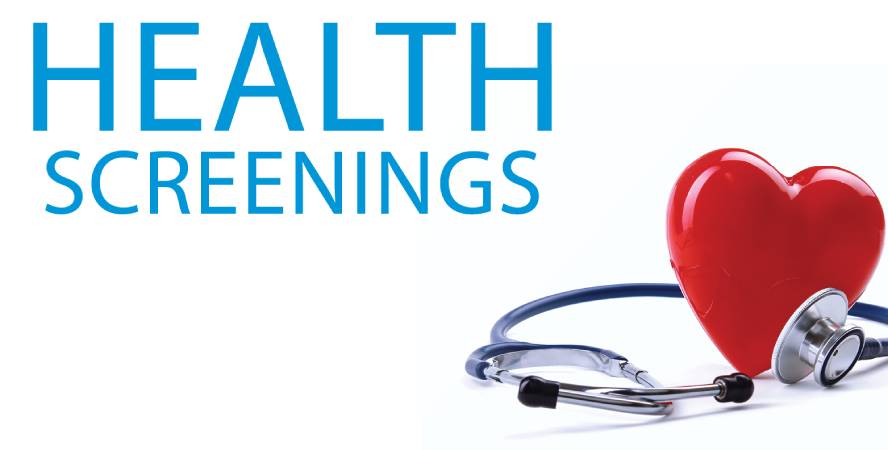Routine doe health screening keep you in top shape: We should not underestimate the importance of regular medical examinations. Busy parents, in particular, tend to neglect their health due to work and family obligations. Stresses Dr. Derek Koh, director of the Thomson Wellth Clinic, “Many people are said to have certain relatives who died of illnesses such as heart attacks and strokes. These diseases are very preventable or treatable, especially if caught early.” Find out why you should have regular checkups and get advice from Dr. Koh on what tests to consider and what follow-up steps you can take if your results are abnormal.
Table of Contents
1. Screens are part of preventive care
Regular doe health screening is essentially preventative medicine because it helps look for risk factors that make a person susceptible to certain diseases. For example, heart attacks and strokes do not occur spontaneously, and the leading causes of these diseases are high cholesterol, high blood pressure, diabetes, obesity, and lack of exercise. Men are also more prone to heart disease. Suppose a patient is at high risk for developing heart disease. In that case, doctors will check the heart with a treadmill electrocardiogram, schedule a stress echo test to assess heart function, or a CT angiogram showing narrowed or blocked areas through a blood vessel.
2. Cancers are more common than you think
Statistics show that 30% of the population will die from cancer and another 30% from heart attacks and strokes. This means that in a room of 10 people, three people are likely to get cancer. Since it’s impossible to know who all three are, it’s best to get tested to nip diseases in the bud before they progress to the point where medicine can’t cure them. Doctors will look at family history and national statistics to determine the three to five most common types of cancer a patient could develop.
3. Early detection can extend shelf life
Patients with stage 1 cancer have a survival rate of 80% or better. However, once the disease reaches stages three or four, survival rates drop to 50% or even 5% for the most aggressive cancers. Stage 1 cancers are unlikely to be seen by people, so early detection through doe health screening will make a big difference.
4. Sometimes healthy lifestyles aren’t enough
A healthy lifestyle remains important: eating well and exercising regularly can delay or prevent silent primary diseases and reduce the risk of high blood pressure, high cholesterol, and diabetes. However, the risk of these diseases also stems from genetics and family history. It is possible for people who are thin, fit, and on a low-cholesterol diet to develop one of these diseases. Therefore, regular checkups are recommended to keep the body under control. Genetics also comes into play with cancers. For example, nasopharyngeal cancer is uncommon in Singapore, but Chinese men, especially those of Cantonese descent, tend to get it. Doctors may recommend that these men be screen for nasopharyngeal cancer more thoroughly than other people.
5. Screening targets specific health conditions
Doe health screening is not only use for preventive care but also helps to solve existing health problems. If you develop chest pain or lose weight rapidly, a doe health screening can get to the root of the problem to determine the underlying cause of your symptoms.
FREQUENTLY ASKED QUESTIONS ABOUT DOE HEALTH SCREENING
When should you start assessing your health?
This can be done as early as age 20, as some conditions, such as high cholesterol or high blood pressure, can be genetic and occur at this time. Otherwise, the official age is 40.
Also Read: Dowagers Hump Exercises
Which tests to choose?
Basic tests include checking cholesterol and sugar levels and blood count tests, which are especially important for women, as they are more prone to anemia. Women are also advise to consider having a thyroid scan, as thyroid cancer is common in women. Additional tests, such as kidney and liver function tests, may be need if you have pre-existing conditions or other risk factors.
What happens after a doe health screening, especially if you get abnormal results?
Abnormal results can often be resolve with a lifestyle change, such as reducing fatty foods or alcohol consumption if you have high cholesterol. However, if this does not work or the lifestyle change is not sustainable, supplements, such as fish oil or medication, will be prescribed.
How should you prepare for a doe health screening if you take medication for a chronic illness?
You should continue to take your medications. But avoid taking diabetes medications when you are fasting for a test, as you may experience low blood sugar. Additionally, if you are performing a treadmill ECG, you should also avoid taking beta-blocker medications As they slow your heart rate, which could affect the test results.
